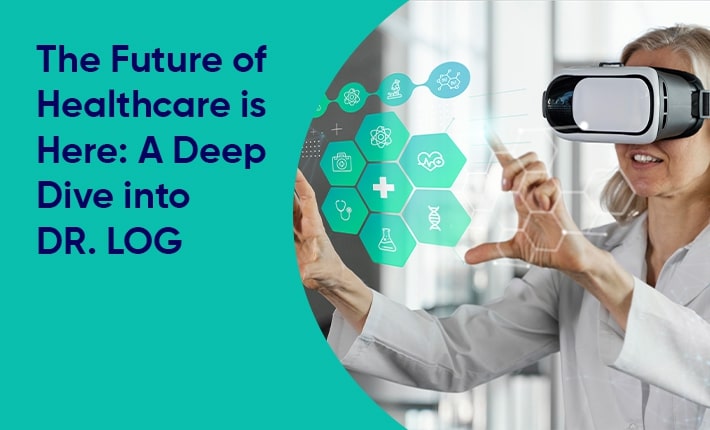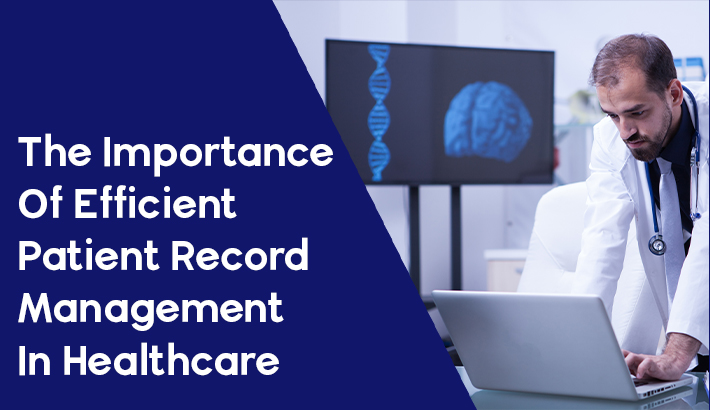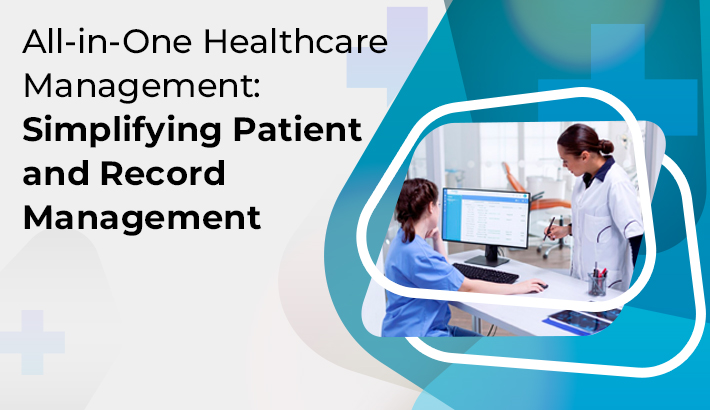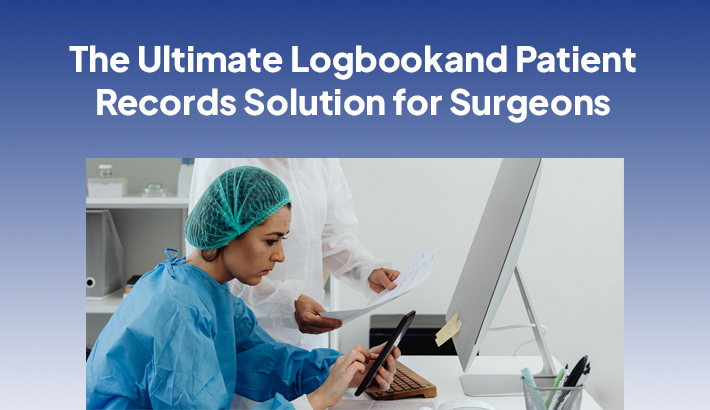The healthcare industry has witnessed remarkable advancements in technology, revolutionizing the way medical professionals deliver care. One such technological breakthrough that promises to transform healthcare is DR. LOG. In this article, we will explore the concept of DR. LOG, its benefits, and the future it holds for the healthcare landscape.
1. Introduction
As the demand for efficient and patient-centric healthcare grows, the need for advanced data management systems becomes increasingly vital. DRLOG, short for Distributed Record Logging, is a cutting-edge technology that addresses this need. By leveraging the power of blockchain, artificial intelligence, and interoperability, DR. LOG offers a secure and streamlined approach to healthcare data management.
2. What is DRLOG?
DR. LOG can be defined as a decentralized system that securely stores and manages healthcare records using distributed ledger technology. It ensures the integrity, accessibility, and privacy of patient data by eliminating the risks associated with centralized databases. DR. LOG allows healthcare providers, patients, and other authorized parties to access and share medical information seamlessly while maintaining data security.
3. The Evolution of Healthcare Technology
To appreciate the significance of DR. LOG, it's essential to understand the evolution of healthcare technology. In the past, healthcare systems relied on paper-based records, which were cumbersome, prone to errors, and difficult to share. With the advent of electronic health records (EHRs), healthcare providers gained a digital alternative, improving data accessibility and storage.
Early Healthcare Systems
Early healthcare systems lacked interoperability, meaning that patient data was often siloed within different institutions or even departments within the same organization. This fragmented approach hindered efficient care delivery and limited the ability to analyze large-scale patient data.
The Rise of Electronic Health Records (EHRs)
EHRs emerged as a solution to the challenges posed by paper-based records. They enabled the digitization of medical records, facilitating data storage, retrieval, and sharing. However, EHRs still faced limitations regarding data privacy, security, and interoperability.
The Need for Advanced Data Management
As the volume and complexity of healthcare data increased, it became evident that a more advanced data management system was necessary. This is where DR. LOG enters the picture, offering a decentralized approach to healthcare data management that overcomes the limitations of traditional systems.
4. Understanding DR. LOG
DR. LOG operates on the principles of blockchain technology, ensuring data integrity and security through cryptographic algorithms. It decentralizes data storage across multiple nodes, eliminating the reliance on a single centralized authority. This distributed nature of DR. LOG enhances data availability, resilience, and transparency.
Definition and Functionality
DR. LOG consists of a network of interconnected nodes that maintain a synchronized and immutable record of healthcare data. Each new entry or modification made to the ledger is recorded as a block, linked to previous blocks in a chain-like structure. This creates an auditable and tamper-proof log of all transactions and activities related to patient health records.
Benefits of DR. LOG
The adoption of DR. LOG brings numerous benefits to the healthcare industry. Firstly, it enhances data security by using cryptographic encryption to protect patient information from unauthorized access. Additionally, the decentralized nature of DR. LOG ensures that data remains available even in the event of a network failure or cyberattack.
DR. LOG also promotes data interoperability, allowing different healthcare systems and providers to exchange information seamlessly. This facilitates collaborative care and improves decision-making by providing a comprehensive view of a patient's medical history.
5. Integration of Artificial Intelligence (AI) in DR. LOG
Artificial intelligence and machine learning have become integral to healthcare advancements. When integrated with DR. LOG, AI enhances the capabilities of the system and improves patient care.
AI and Machine Learning in Healthcare
AI algorithms can analyze vast amounts of healthcare data and extract valuable insights. Machine learning models can identify patterns, predict outcomes, and assist healthcare professionals in making accurate diagnoses and treatment decisions. These capabilities revolutionize the way healthcare is delivered and enable personalized medicine.
AI Applications in DR. LOG
In the context of DR. LOG, AI can assist in data analysis, anomaly detection, and predictive modeling. It can identify potential health risks, alert healthcare providers of critical conditions, and even automate certain administrative tasks, freeing up valuable time for clinicians to focus on patient care.
6. Enhancing Patient Care with DRLOG
The integration of DR. LOG in healthcare systems brings significant improvements to patient care and outcomes.
Improved Diagnosis and Treatment
With comprehensive access to a patient's medical history through DR. LOG, healthcare providers can make more informed diagnoses and create personalized treatment plans. This reduces medical errors, enhances patient safety, and improves overall care quality.
Personalized Medicine
DR. LOG, combined with AI capabilities, enables personalized medicine by leveraging data-driven insights. AI algorithms have the ability to analyze vast amounts of data, enabling them to identify patterns and forecast optimal course of treatment for individual patients. This approach optimizes outcomes and reduces unnecessary procedures or medications.
Remote Patient Monitoring
DR. LOG enables the seamless exchange of patient data between healthcare providers, enabling remote patient monitoring. This allows medical professionals to monitor patients' health conditions in real-time, providing timely interventions and minimizing the need for hospital visits. Remote patient monitoring enhances convenience for patients, especially those with chronic conditions, and improves healthcare resource allocation.
7. Overcoming Challenges and Concerns
While DR. LOG holds immense potential, there are challenges and concerns that need to be addressed for its successful implementation.
Data Security and Privacy
As healthcare data becomes increasingly digital, ensuring its security and privacy becomes paramount. DR. LOG addresses these concerns through cryptographic encryption and decentralized data storage. However, continuous efforts must be made to stay ahead of evolving cybersecurity threats and protect patient information.
Ethical Considerations
The use of AI in healthcare raises ethical considerations, such as data bias, informed consent, and transparency. It is crucial to develop guidelines and regulations that govern the ethical use of AI in DR. LOG to ensure fairness, accountability, and patient trust.
-Workforce Adaptation
The integration of DR. LOG requires healthcare professionals to adapt to new technologies and workflows. Adequate training and support must be provided to ensure smooth adoption and utilization of the system. Additionally, concerns related to job displacement and the role of healthcare professionals in an AI-driven environment need to be addressed.
8. Future Trends and Innovations
The future of healthcare, driven by DR. LOG and other emerging technologies, holds exciting possibilities.
- Blockchain Technology and Interoperability
Blockchain technology continues to evolve, offering enhanced interoperability solutions. Interoperable healthcare systems will facilitate seamless data exchange across different institutions and systems, improving care coordination and patient outcomes.
- Internet of Medical Things (IoMT)
The IoMT refers to the interconnected network of medical devices and sensors. By integrating IoMT with DR. LOG, healthcare providers can collect real-time patient data, monitor vital signs remotely, and proactively intervene in emergencies. This technology has the potential to revolutionize disease prevention, diagnosis, and treatment.
Telehealth and Virtual Care
The COVID-19 pandemic accelerated the utilization of telehealth and virtual care. DR. LOG can further enhance these remote healthcare services by securely storing patient data and enabling seamless information exchange between healthcare providers and patients. Telehealth and virtual care offer convenience, accessibility, and cost savings, particularly for patients in remote areas.
9. Conclusion
The future of healthcare is undoubtedly being shaped by technologies like DR. LOG. By leveraging the power of blockchain, AI, and interoperability, DRLOG offers a secure, efficient, and patient-centric approach to healthcare data management. It enhances patient care, enables personalized medicine, and opens doors to innovative healthcare delivery models. However, challenges related to data security, ethical considerations, and workforce adaptation must be carefully addressed to maximize the potential of DR. LOG.
10. FAQs
1. How does DR. LOG benefit healthcare providers?
DR. LOG benefits healthcare providers by enhancing data security, improving interoperability, and streamlining data management. It allows seamless sharing of patient information, leading to improved care coordination and better decision-making.
2. Can DR. LOG be integrated with existing healthcare systems?
Yes, DR. LOG can be integrated with existing healthcare systems. Its interoperable nature allows for the seamless exchange of data between different healthcare providers, ensuring a comprehensive view of a patient's medical history.
3. Is patient data safe and secure with DR. LOG?
DR. LOG ensures the safety and security of patient data through cryptographic encryption and decentralized storage. It reduces the risks associated with centralized databases and provides a tamper-proof and auditable record of all transactions.
4. How does AI improve patient care in DR. LOG?
AI enhances patient care in DR. LOG by analyzing healthcare data, identifying patterns, and providing data-driven insights. It assists in accurate diagnoses, personalized treatment plans, and remote patient monitoring, leading to improved outcomes and patient satisfaction.
5. What are some potential future applications of DR. LOG?
In the future, DR. LOG could be used in various applications, such as clinical trials management, supply chain logistics in healthcare, and patient consent management. It has the potential to revolutionize healthcare data management and contribute to advancements in medical research and innovation.




